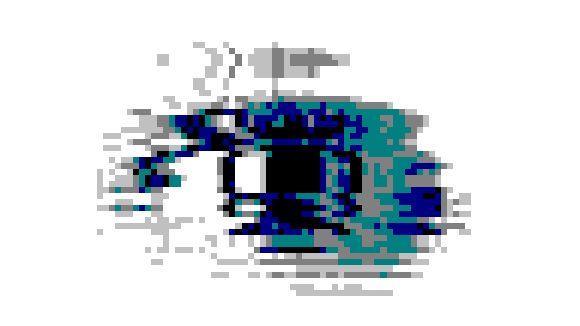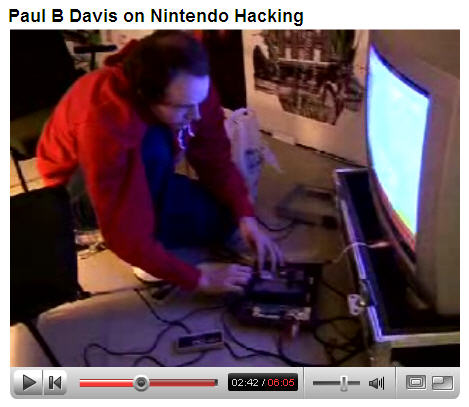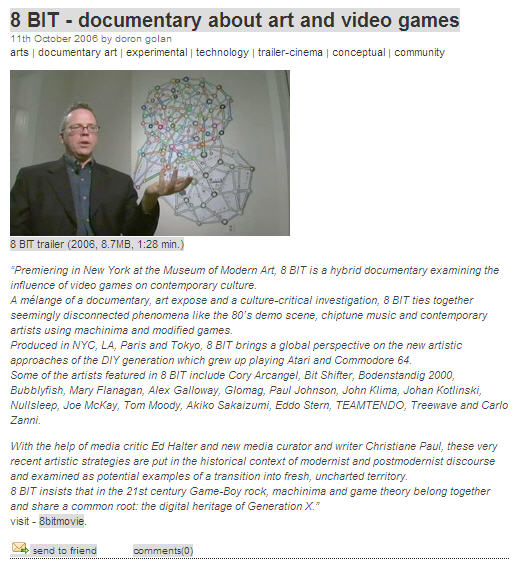View current page
...more recent posts

In "How to Make a Power Grab Mundane," in Editor and Publisher, James Bovard nails the bland language the Washington Post used to describe the enactment of the Bush/McCain torture law:
The Military Commissions Act is widely seen as legalizing torture, but the article avoids any such mention of the T-word. Though the act revolutionizes American jurisprudence by permitting the use of tortured confessions in judicial proceedings, the Post discreetly notes only that defendants will face “restrictions on their ability to ... exclude evidence gained through witness coercion.”Court challenges to this horrible law will need to be robust and unceasing. Let's hope the civil rights bar is up to the job, since we obviously can't count on newspapers to protest the dismantling of Constitutional protections of freedom and individual rights.
The lead of the Post article declares that the new law will “set the rules for the trials of key al-Qaeda members.” A typical subway strap hanger reader might shrug at this point and shift to the Sports section to read the latest autopsy on the Washington Redskins. The Post neglects to mention that the bill codifies the president’s power to label anyone on Earth an “enemy combatant” -- based on secret evidence which the government need not disclose.
Almost let Brian De Palma's The Black Dahlia slip out of the threatres, noting the so-so reviews, and then remembered, with a forehead slap, he always get bad reviews--until 5, 10, 20 years later, then everyone loves his work.
It's awesome. Yeah, yeah, Josh Hartnett and Scarlett Johansson are wooden, so what? You don't go to this man's films for the acting--it's adequate. With De Palma it's the architecture, the slithery camera unhinged from narrative (or so we think until it reveals something important), the overwhelming sense of place, the visual clues and puns, the high camp melodrama, the intricately worked out geometry of every scene. The shot of the creepy slum houses under the "Hollywoodland" sign alone brings James Ellroy to life, but the "discovery of the body" scene takes his tawdry view of tinseltown to a whole other macabre level. The movie is shot on digital video but it feels big screen ambitious.
Go, go tomorrow. Be sure to look for Mia Kirshner as the Dahlia--she played "the babysitter" in Atom Egoyan's Exotica and seems forever on the verge of a major career. May she be another Jennifer Connelly blessed with a "late break." She's really good.

YouTube: "Produced by Hit 'n' Run [for Dutch television], this interview took place with Paul B. Davis from the BEIGE collective at the 35th International Film Festival Rotterdam. Paul exhibited a piece at the exhibition 'Satellite of Love' produced by Exploding Television. Here he talks about his Nintendo Cartridge Hacking."
Davis' delivery is very dry and funny in this video, and he has some great things to say. He and fellow artist Cory Arcangel, through their work with the BEIGE collective, have both been active proponents of busting open game cartridges and reprogramming the chips (though perhaps in a less aggressively activist way today than a few years ago--but that's another post). While gaygamer.net calls Mary Flanagan the "secret heart" of the movie 8 BIT, I don't really agree with that. (As mentioned earlier, Kristin Lucas's work would have been a catchier example in the film to show the psychological effects of life in a high-speed technological world--her late '90s videos incorporating game and sci-fi tropes are at once disturbing, aesthetically engaging, "lo fi," and presaged many themes of what might now be called the 8 BIT movement.)
No, if the movie has a secret heart, it's why Arcangel and Davis, who used the phrase "8 Bit" in an LP title five years ago and are sort of the poster children for the current scene, started hacking Nintendo cartridges in the first place. Davis was always the more political of the pair in how he speaks about it, but he makes an interesting point in this YouTube vid: that untapped aesthetic potential exists in everyday gear that is meant to be inaccessible to us. As he describes it, the "cheapest, highest quality audio and video generation system you could get" is locked up in a proprietary system that mostly sits in your closet. Although its hardware and software constitute a complete or "general purpose" computer, it only does one thing, which is play this one particular brand of game.
This is what I would call the "ecological" argument--a wry complaint addressed to the consumerist waste that is the bedrock of our capitalist system and represents a condition that simply will not go on forever, as resources dry up and the planet turns into a sewer. To some extent the 8-bit scene gives a glimpse of artists we will have after the Fall: patterned on archetypes like Gilligan's Island's Professor or Escape from New York's Brain, they will squeeze "energy dependent culture" out of a diminishing stock of manufactured products. Yet the BEIGE crew is doing it now, while we're still awash in plentiful, working consumer electronics. Their suggestion that "anyone can hack cartridges" also recalls Robert Pirsig's '70s self help book Zen and the Art of Motorcycle Maintenance, which argued for people taking back some control in their technologically dependent lives. Of course, the BEIGE work is goofy and fun, too--it's not as Earth First!-y or New Age as I'm making it sound. Here is an excerpt from an early manifesto, written by Davis; it would have been nice to hear more of this in 8 BIT:
Bereft of a veneer, interaction with such complicated machinery requires a significant amount of technological knowledge and awareness. In this spirit, "Fat Bits" represents a step towards what Cory and I describe as "Post-Data". We create computer art which is aesthetically aware of both its own identity and the underlying process which supports it - that is to say it recognizes the fundamental prototype of the "computer", and not the "software", as the tool and medium. The content for "Fat Bits", video of a NHL hockey fight, was chosen because the close-up nature of its imagery makes for convenient replication on low-resolution systems such as the Nintendo Entertainment System. The use of the Nintendo Entertainment System is itself important because it, firstly, signifies an artistic "re-licensing" of proprietary corporate technology and, secondly, refutes Nintendo's forced obsolescence profit structure which defines it as "outdated" (the Nintendo Entertainment System was introduced to the US home video game market in 1986). Our primary foundation of Post Data is then this: the conscious corruption of data, the releasing of bits from their imprisonment within the restrictive, limiting boundaries of corporate software applications, and the exploitation of the extreme complexity of computer systems paired with the extreme intentionality of artist(s) who seek to engage the computing process at a fundamental level.

Thanks to DVBlog for this post with a screenshot of some guy in the 8 BIT trailer (widescreen Quicktime version, no longer viewable on the 8 BIT website)
Speaking of DVBlog, jimpunk has excellently remixed the 8 BIT trailer at DVBlogh4ck.
My post on the Paul Slocum and Cory Arcangel performances at vertexList gallery has been updated, to account for various meta levels I missed the first time around. I can't promise it won't happen again.
Paul has posted some photos of the event here.

For "player hating" at its best, check out writer Daniel Mendelsohn's acid spew all over Jonathan Franzen's book The Discomfort Zone in the current New York Times. I haven't read the book but the review gives me hives. Mendelsohn goes right for the personal, zeroing in on Franzen's pop culture breakthrough moment, the supposed gaffe in declining to be an "Oprah author," while brushing past the merits of that controversy. For concern troll Mendelsohn, what made Franzen a "tragic" figure wasn't that TV triumphed over literature but that Franzen lost book sales. So, is Mendelsohn reviewing a book or an individual? The latter--he never lets up. One might expect a memoir written by a fiction writer to shade truth with some degree of persona fabrication. Yet to Mendelsohn, Franzen is simply "self-involved," with a "humorless" authorial voice that irks him mightily. Without reflecting on how his own buttons might be getting pushed (maybe it's, you know, craft, or maybe Mendelsohn's mother is like that), he stays on the ad hominem trail. When Franzen's virtues are mentioned it's usually a setup for another sledgehammer blow.
And Mendelsohn's writing is bad. He describes The Corrections, the Oprah candidate in question, as "an acerbic and often searingly painful dissection of one Midwestern family’s disintegration as its stodgy values [a]re put to the test by the go-go avidity of American culture in the 1990s." "Go-go avidity"? What does that mean? Mendelsohn declares Franzen's "wider failing" to be his "lack of humanizing softness." One wishes Nabokov, Beckett, and Richard Ford could be nicer too--more "human." Mendelsohn spends two paragraphs proving that Franzen is "wrong" about the comic strip Peanuts. He isn't saying that Franzen's identification with Snoopy over Charlie Brown is a failed literary conceit but, rather, a sign of his deep moral failing as a person. Maybe Mendelsohn is right, and the book is Franzen, with no writerly intervention whatsoever. As I said, I haven't read it. Mendelsohn's envy and aggression in the service of increased human sensitivity, however, is something I wish I hadn't read.
